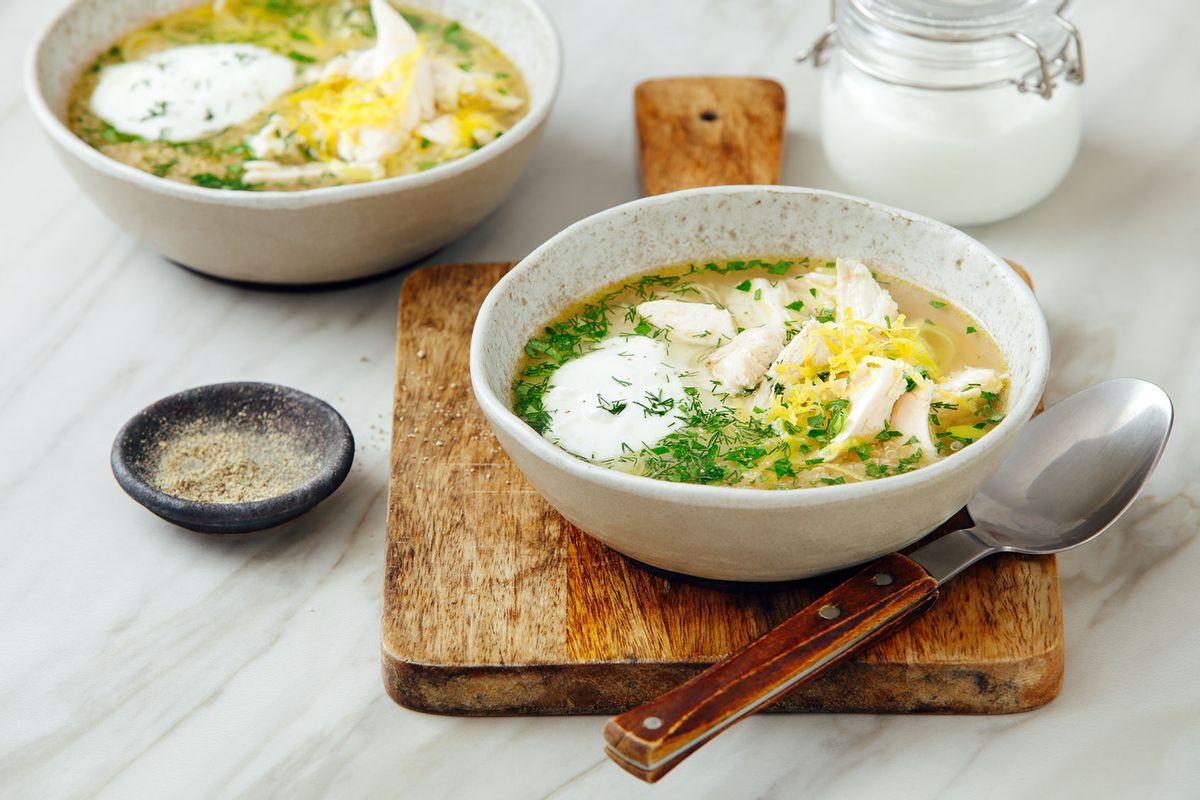Chicken noodle soup — is there a more universal comfort food? The name itself conjures images of warmth, sustenance and solace, whether warming you up from an excursion in the cold or providing a brief respite from the sniffles.
I hearken back to that 1993 Campbells soup commercial depicting a freezing, lumbering snowman coming inside a home, hanging up his scarf, sitting down at the kitchen table and soon thawing to reveal a smiling child, jubilant as he consumed the hot soup. The narrator says: "Nothing melts away the cold like Campbells soup."
Equal parts silly and sweet — but 100% pure nostalgia for a late-'80s child like me — the commercial really did encapsulate that notion of being "warmed up" or otherwise comforted by eating hot food at home and finding something soothing in that. (Disregarding the realism of a snowman-boy hybrid, though, it did always chap my hide that he left such an immense puddle under his chair — who cleaned that mess up?)
For The Conversation, Juliane Schlag noted that "the earliest recorded evidence of chicken soup being used as a therapeutic dish dates back to Chinese antiquity. In the second century BC, the Chinese medical text, Huangdi Neijing, declared that chicken soup is a "'yang food' – a warming dish – to which different therapeutic herbs can be added to cure various diseases."
Similar to how pastina is sometimes referred to as "Italian penicillin," the same is true for chicken or chicken noodle, often hailed or regarded as "Jewish penicillin." No matter the ailment, some truly regard chicken noodle soup as a cure-all. "Chicken Soup for the Soul" books are still publishing, encompassing the entire notion of what chicken soup means culturally and personally for so many.
Clearly, the coziness of chicken noodle soup is well-established. No matter the scientific or empirical evidence for its curative properties from a physiological standpoint, a bowl of soup in and of itself tends to already provide some level of reassurance and warmth.
From a strictly culinary perspective, though, I must admit: Chicken noodle soup wasn't my absolute favorite for the longest time. I'm a big texture guy and — obviously — all soup is pretty inherently soft or soggy in most iterations, especially if you're only eating Campbell's. I would have homemade chicken noodle soup at home and it was good, but never something I particularly craved or felt bowled (ha! pun intended) over about.
When I started cooking, I rarely included chicken noodle in my repertoire, just because I thought it was pretty basic and nothing too exciting could really be done with it — until about a decade ago, when I found an Anne Burrell recipe that changed my whole approach.
The secret, if you will, is a pretty simple ingredient you most likely already have on hand: lemon!
Want more great food writing and recipes? Subscribe to Salon Food's newsletter, The Bite.
It brightens and freshens up the soup, adding a sharp burst of acidity that cuts through the toothsome chewiness of the noodle and the sometimes-dense chicken pieces, enriching the experience with sharp flavor that both lingers on the palate, but is also not overwhelming. It enriches the broth, adding a depth of flavor that elevates its savory richness. To this day, if I eat a chicken soup that isn't lemon-y, there's a real missing component. (Burrell also includes some cinnamon, which I love in any sort of savory capacity).
Now, when I make chicken noodle soup, I borrow from Burrell's additions of lemon and cinnamon but make my own variation. I also opt for both lemon zest and juice to ensure that the flavor is as pungent as can be.
Like salt, the lemon doesn't only lend its own flavor, it helps to embolden other flavors in the soup itself, amplifying all of the other ingredients to their best and brightest. It livens up the whole shebang and really makes the soup, truthfully. Grab a bowl and join me.
Read more
about soups
Salon Food writes about stuff we think you'll like. While our editorial team independently selected these products, Salon has affiliate partnerships, so making a purchase through our links may earn us a commission.



Shares